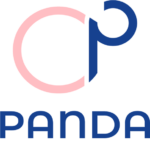News
Open letter to the European Parliament
The Members of the European Parliament
The EU Member states
The Ministers responsible for child welfare
August, 2023
Subject: Participation of young children in child welfare and child protection
The PANDA project is an EU Erasmus Plus KA2 funded project involving collaboration between four countries (Belgium, Norway, Spain and Northern Ireland) for innovation and the exchange of good practices.
The project’s overarching aim was to promote the participation of young children (aged 12 years and under) in decision making in a transnational context through strengthening professionals collaboration with young children involved in child welfare/child protection services by collating and disseminating learning materials for social workers, managers, policy officers and trainers.
There were four objectives: first, to increase the competence of social workers/professionals; second, to support organisations to create the conditions for participatory social work with young children; third, to provide guidelines for policy officers and managers to support the implementation of a participatory approach to social work; and fourth, to provide trainers of post-initial training to teach new tools and methods
In relation to the four objectives, and from the materials gathered, we have learned that statutory and non-statutory organisations have a range of policies relating to the participation of children and that there are many tools, methods and approaches available to help professionals engage with children.
However, we have also learned that although policies exist, their principles and ideals do not always translate to daily practice and that professionals need further support to develop their knowledge of the UNCRC and supporting General Comments, and practical ways in which they can enable young children to engage their participation rights. We have learned that these points are especially relevant to children aged 0-6 years.
We are committed to sharing our learning from the PANDA project for the benefit of young children, professional practitioners, policy makers and academics in the European community. With this in mind and building on the European Commission’s commitment to promoting the wellbeing of young children and the Council of Europe Strategy for the Rights of the Child 2022-2027, we would respectfully request that the European Commission give serious consideration to the recommendations below.
Policy recommendations
A scoping exercise for all child welfare organisations
That all statutory and non-statutory child welfare orientated organisations undertake a scoping exercise to determine a) whether they have a participation policy b) how effective that participation policy is in enabling young children (with a particular focus on children aged 0-6 years) to engage their participation rights.
A participation policy in collaboration with children in all child welfare organisations
That, in the absence of a specific participation policy, all statutory and non-statutory child welfare orientated organisations develop a policy in collaboration with children and young people which includes a focus on structures and processes and outcomes for children.
Participation policies as condition for funding
That participation policies include obligations on organisations to fund, develop and deliver a rolling and ongoing programme of training on the UNCRC, supporting General Comments and practical skills in communicating with very young children to enable them to access their participation rights.
Participation policies are the responsibility of all Government ministries/departments
That participation policies include organisational obligations to share information on approaches and outcomes reflecting the fact that the voice and participation of young children in child welfare and protection settings is inextricably linked with the wider social participation of families and adults and the voice and rights of young children are the responsibility of all Government ministries/departments (local and national) and young children’s lives must not fall through gaps in government structures.
All initiatives on children’s voice are inclusive co-creative initiatives
That all initiatives relating to the promotion and development of children’s voice and participation need to be undertaken as inclusive co-creative initiatives, that involve young children and their families, practitioners, policy makers and academics.
Practice recommendations
Explicit reference to the UNCRC principles in daily practice
Daily practice, as well the associated systems for guiding, monitoring, reflecting on and reporting on practice, should make explicit reference to the following UNCRC principles:
To express their views
All children have agency and capacity to express their views and this must be recognised and facilitated;
Without age limit
Age is not a barrier to the voice of children being heard and their participation being promoted and therefore particular attention needs to be paid by professionals to the voice of pre-verbal children (aged 0-3);
In a variety of ways
Children express their voice in a variety of ways and need opportunities to do this that reflect their unique, individual ethnic, national, religious, linguistic, geographical, political, social, economic, financial and familial backgrounds;
Accessible information
Children need access to wide ranging, suitable information about their participation rights, and professionals and children need access to creative tools and resources that enable children to access their participation rights;
The right to no participate
Children’s rights not to participate must be respected.
Professional education recommendations
UNCRC in the curricula
The United Nations Convention on the Rights of the Child must be at the core of the curriculum of child welfare professional education programmes.
Voice and participation of young children as integral component in curricula
The voice and participation of young children in child welfare must be an integral component of the curriculum of child welfare professional education programmes.
Funded experienced facilitators to work with educators
Experienced facilitators should be made available and funded to work with professionals to support the development of professional understanding of, and expertise in, participation and collaboration practices with children.
Research recommendations
Research on participation of children 0-6 yrs
Research is required that explores the opportunities for enhancing young children’s participation in child welfare practice, in particular in relation to very young children aged 06 years.
The Erasmus+ Panda Project team
Wendy Eerdekens
Erasmus+ Panda Project Coordinator
